If you’re looking for independent, unbiased reviews of VPN services, you’re in the right place. We’ve tested dozens of them, and we’ve ranked them below on merit – and nothing else. We’ve looked at everything from speeds and features to whether they readily unblock Netflix and other streaming services, and we’ve poked around in privacy policies to find out if a VPN logs any sensitive information.
We also test out all the apps to see whether a vpn is as good on Android or Amazon Fire TV, say, as on Windows, and then consider what each service costs to arrive at a final verdict.
Chances are you want a VPN simply to get around regional blocks so you can watch a streaming service that isn’t currently available where you are, or something specific on Netflix in a different country that’s not listed in your local library.
There are other benefits, though. Because a VPN encrypts the data going to and from your device and also replaces your real IP address with a different one, your online activity and real location are hidden from anyone looking. Plus, that encryption means extra security when you’re using free Wi-Fi at an airport, hotel or café.
So it’s worth subscribing to a service that allows you to use it on a variety of devices, including your phone, laptop and tablet.
Don’t assume that all VPN services are the same. They aren’t, and you shouldn’t just pick the cheapest. Below you’ll find ten VPN services that are all deserving of a place on your shortlist for one reason or another.
The best for you will depend upon exactly why you want a VPN, but our top overall pick, NordVPN, is a great choice no matter what your priorities.
Despite what we’ve said about security, it’s important to know that a VPN won’t stop viruses or other malware. This is why quite a VPN services – including Nord – now offer Antivirus either as a bonus feature or as a bolt-on for an additional cost. These are largely unproven, so our recommendation is to use a VPN alongside what we consider to be the best antivirus software, particularly on Android and Windows devices.
We have reviewed many other VPNs, which you can see if you browse all our VPN reviews, but they weren’t good enough to be included here. They include HMA, AdGuard VPN ,Bullguard VPN, Goose VPN, Hotspot Shield Premium and ClearVPN.
The best VPN services to use in 2024
1. NordVPN – Best overall
Pros
- Excellent speeds
- Unblocks lots of video services
- Independently audited (multiple times)
Cons
- Price rises steeply on renewal
- Not unlimited connections
Price When Reviewed:
From £3.58 per month
NordVPN is the best choice for most people. It’s easy to use, fast and offers lots of servers in many locations around the world.
It’s very good at unblocking many streaming services including Netflix and Disney+, and now offers a native app for Apple TV. It also ticks the privacy box and has proven than it sticks by its no-logs policy by carrying out three audits, the most recent in December 2022.
Thanks to its NordLynx encryption protocol (based on WireGuard), it’s one of the fastest VPNs around so shouldn’t slow down your internet connection, even if you have full fibre. It offers a good range of features including a kill switch on its Android, Windows, iPhone and macOS apps.
NordVPN may not be the cheapest VPN out there, but rarely is the cheapest also the best. It’s great value considering the top-notch service that it offers.
The two-year subscription is the one to go for as it represents the cheapest monthly cost. NordVPN now offers three tiers: Standard, Plus and Ultimate. Plus adds Nord’s Password Manager and Data Breach Scanner, while Ultimate also comes with 1TB of encrypted cloud storage and Cyber Insurance, which can help you recover financial losses from scams and other fraud.
See the latest NordVPN deals.
Read our full
NordVPN review
2. Surfshark – Best for people with lots of devices
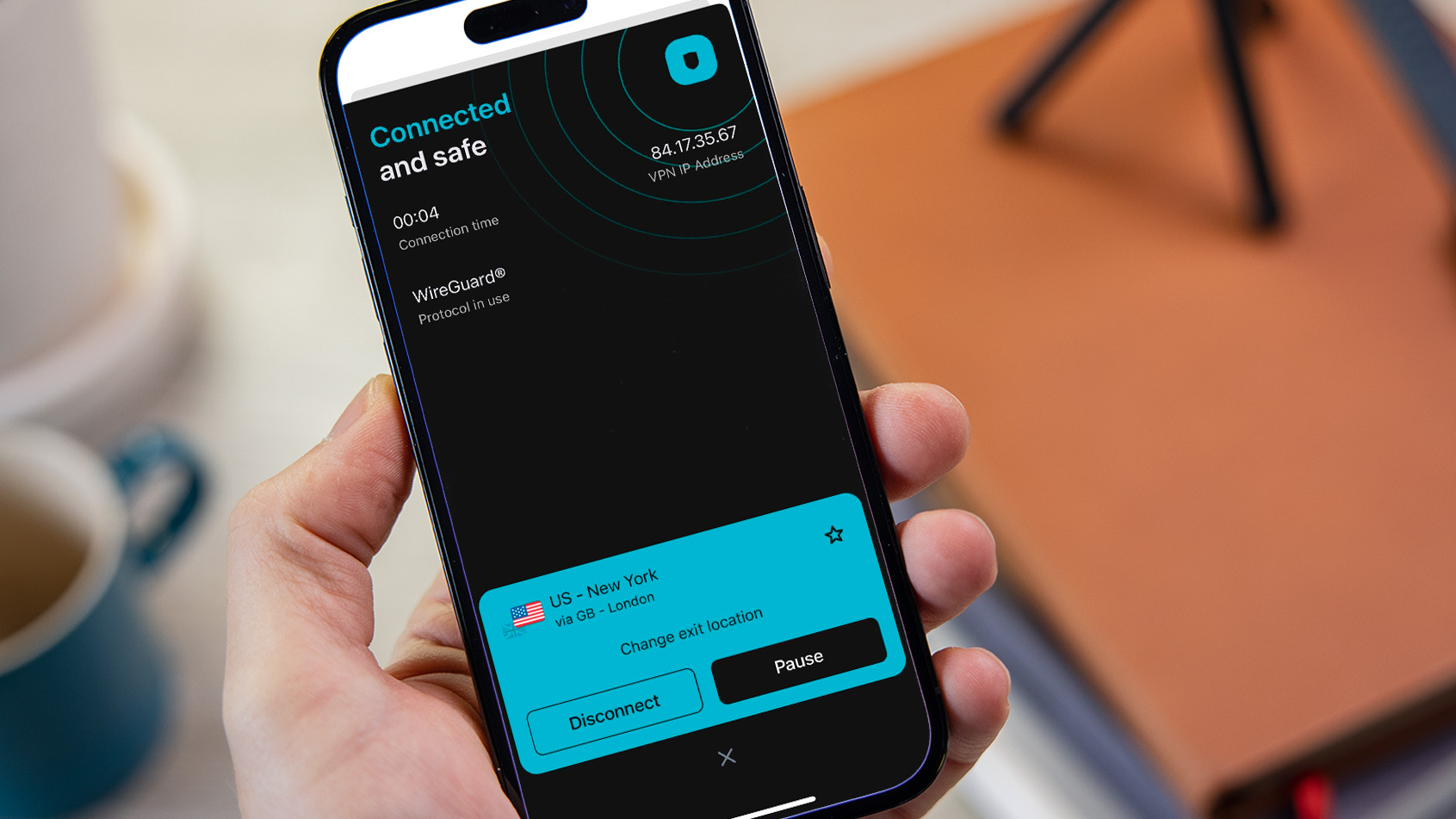
Pros
- Unlimited connections
- Audited no-logs policy
- Great speeds
Cons
- Price doubles on renewal
- Unblocking not as good as NordVPN
Price When Reviewed:
From £2.43 per month
Surfshark used to be really cheap, but although it’s now almost on a par with NordVPN in terms of cost, it’s also now very similar in terms of its features and performance. Hardly surprising given both services are owned by the same company.
They’re not identical by any means, though, and Surfshark offers a couple of very compelling reasons to choose it over NordVPN. One is that it allows an unlimited number of connections, so you can install it on as many devices as you like. The only slight snag is that Surfshark hasn’t yet released an Apple TV app, though that won’t matter if you don’t own one, or don’t want a VPN to unblock streaming services.
Surfshark a pretty good track record for unblocking videos, and it is also nearly as fast as NordVPN when using WireGuard.
The other compelling feature is Nexus which is too complex to discuss here. One of its benefits is that you can choose your own ‘double VPN’ route, using the apps to pick the two countries. For example, you could select UK -> USA, which gives extra privacy compared to connecting directly to a server in the USA.
Surfshark is run from the Netherlands which is privacy friendly and – addressing a criticism we’ve had for years – has now an audit of its no-logs policy, which found no issues. And that means it’s trustworthy.
The only real drawback is that the subscription price jumps steeply upon renewal. This is a gotcha with quite a few VPN services (including NordVPN) and one that’s easily missed when signing up. However, as long as you remember to cancel your subscription before it renews, you’re free to sign up for a new deal again.
Read our full
Surfshark review
3. CyberGhost – Best value for streaming
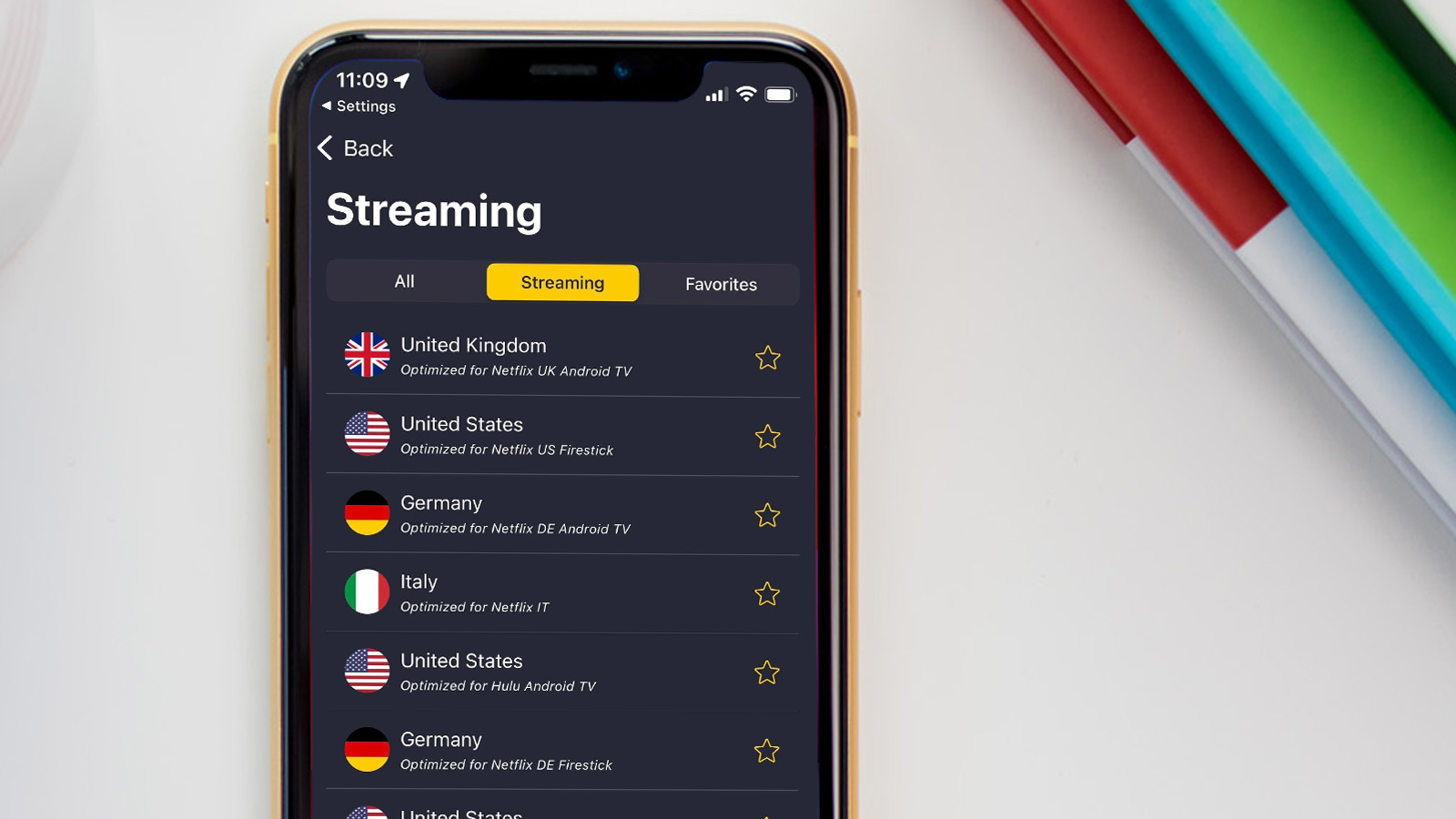
Pros
- Unblocks lots of video services
- Recent independent audit
Cons
- Price doubles when two-year subscription renews
Price When Reviewed:
From £2.16 per month
CyberGhost is a well-established VPN service which is based in Romania. That’s good for privacy, and now you don’t have to blindly trust CyberGhost’s privacy policy as Deloitte has audited it and found no issues.
Even if privacy isn’t top of your wish list for a VPN, CyberGhost has other attractions. It’s great at unblocking streaming services including Netflix, Disney+, BBC iPlayer and ITV X (another UK-based service). And since CyberGhost has an absolutely huge selection of servers, if the recommended one doesn’t work, you can try a few others. It’s frustrating – for Apple TV owners – that CyberGhost still hasn’t released an app, after Apple added support for VPNs in tvOS17.
The other highlight is performance. With WireGuard available on all its apps, you can expect speedy connections for things like downloading files, streaming in 4K and gaming.
Factor in the tempting deals on two- or three-year subscriptions and the ability to use the service on up to seven devices at the same time, it’s a great option for anyone looking for a capable VPN that won’t break the bank. Just make sure you cancel that subscription before it renews to avoid paying a higher price for the next one.
Read our full
CyberGhost review
4. Private Internet Access
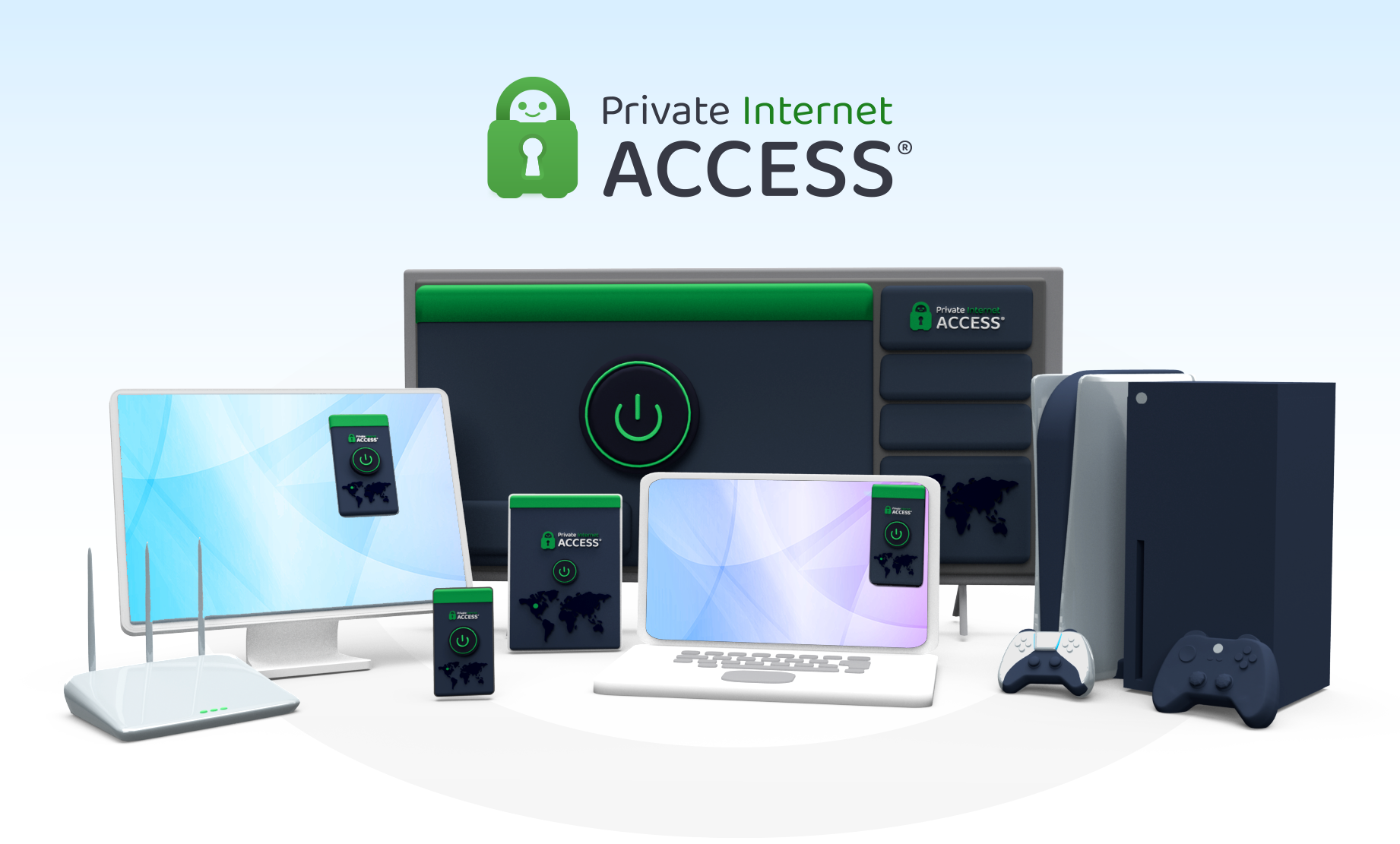
Pros
- Audited no-logs policy
- Good at unblocking streaming services
Cons
- Price doubles at end of subscription
- Browser extensions are not VPNs
Price When Reviewed:
From £2.37 per month
PIA is an feature-packed VPN service which should appeal whether you’re a gamer, privacy advocate or want to unblock streaming services. It’s good value, too.
It’s not the fastest or cheapest out there, but it does have a heck of a lot of servers, is highly configurable and now has the reassuring Deloitte audit which makes its US location a non-issue.
It isn’t our first choice for unblocking streaming services, but it may unblock everything you need it to.
See the latest Private Internet Access deals.
Read our full
Private Internet Access review
5. ExpressVPN

Pros
- Fast, reliable connections
- Strong privacy & security
- Great unblocking
Cons
- Expensive
- No double-hop option
Price When Reviewed:
From £5.60 per month
ExpressVPN bills itself as the premium choice and has a price to match. But if you’re willing to pay slightly over the odds and need to unblock some of the more obscure streaming services, it’s your best bet.
Plus, ExpressVPN now offers an Apple TV app alongside a range of others, so it’s easy to use on most popular devices. The browser extensions are unusual in that they actually use the VPN service (they’re not just proxies) and ExpressVPN’s router app is surprisingly good. In fact, if you want all your home devices to connect via a VPN, ExpressVPN is the best choice for running on a router. It even sells its own Wi-Fi 6 router now called Aircove.
The company provides great tech support if you ever need help, and its proprietary Lightway protocol means you get quick speeds that are unlikely to slow down your broadband connection.
Privacy and security are excellent, and the company has had lots of audits carried out fairly recently, covering its apps and privacy policy.
ExpressVPN does lack a few features, such as double-hop routes which send your connection via two servers instead of one. However, it is catching up a bit with NordVPN as it has expanded its Threat Manager feature to block ads, not just trackers. It can also block adult websites.
It also added an auto-update feature for its Windows and macOS apps so, finally, you don’t have to do this manually in order to get the latest features.
Even better news is that it has again upped the limit for how many devices you can connect at the same time from five to eight. Still, it’s difficult to recommend it over NordVPN at this price.
Get three months free when you sign up for a year of ExpressVPN
Read our full
ExpressVPN review
6. ProtonVPN – Best for privacy-conscious power users
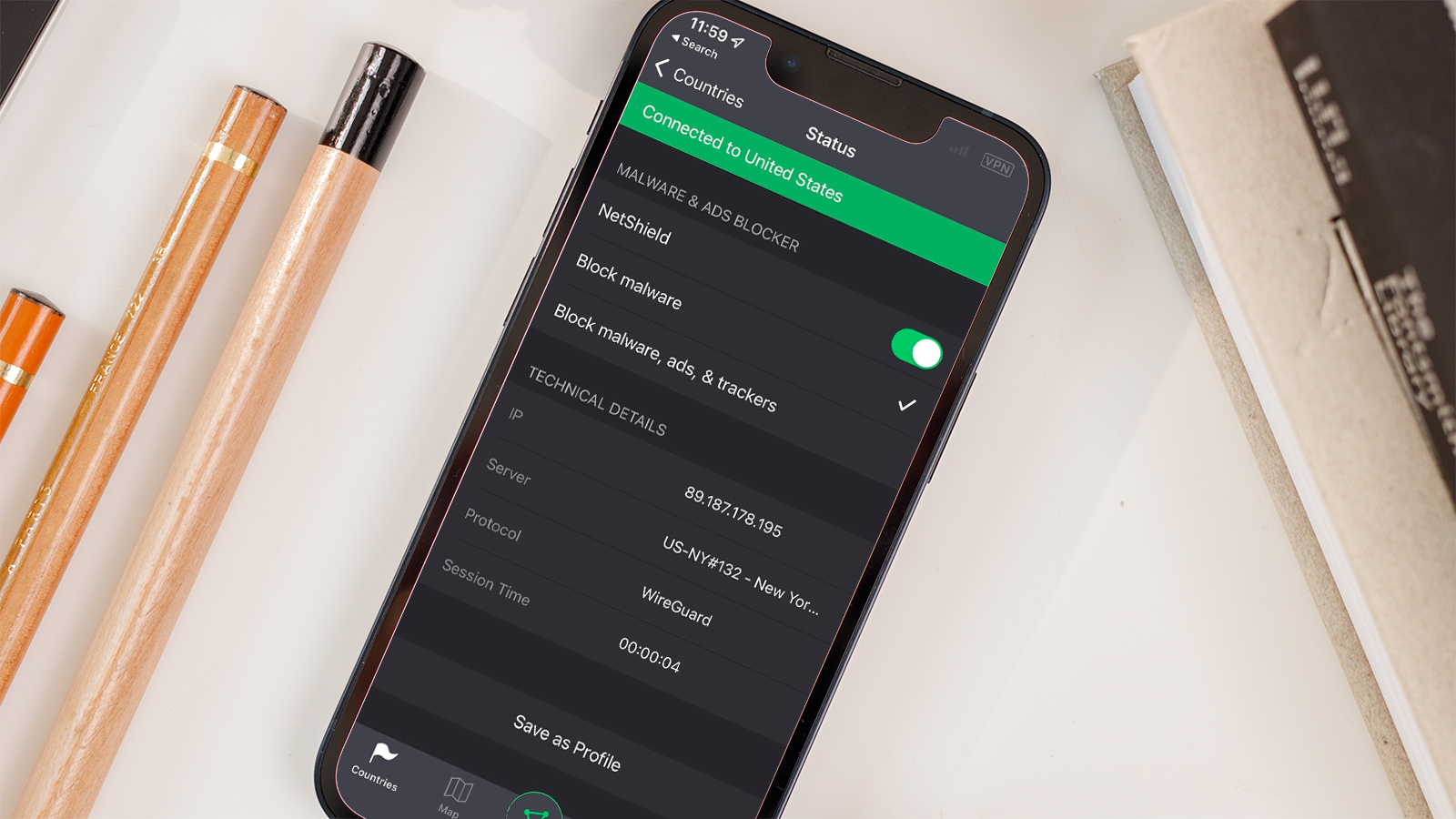
Pros
- Great privacy credentials
- Lots of settings and options
- Good unblocking
Cons
- More expensive than rivals
- Can’t use kill switch and split tunnelling together
Price When Reviewed:
From free ($5 per month for Basic)
If you’re a power user wanting a VPN for privacy and security, Proton might well appeal. Although there is a free tier, that has restrictions on the number of servers you can choose, and the speeds on offer.
Those paying for ProtonVPN get access to excellent speeds, loads of options and can also use ‘Secure Core servers’ which route your connection through multiple servers for better privacy. There’s also support for Tor over VPN. Apps are all open source, and the service is based in Switzerland, which is ideal for privacy.
In 2022, a third party audited Proton VPN and confirmed it does stick by its no-logs policy.
You also get a couple of extras including a NetShield which uses DNS filtering to offer protection from malware-infested websites, and ads and trackers if you want.
ProtonVPN is good at unblocking streaming services, but if you don’t also want or need its privacy features or all the settings such as creating custom profiles for automatically connecting to servers, then there are cheaper options here.
Read our full
ProtonVPN review
7. Atlas VPN – Best for streaming on a budget
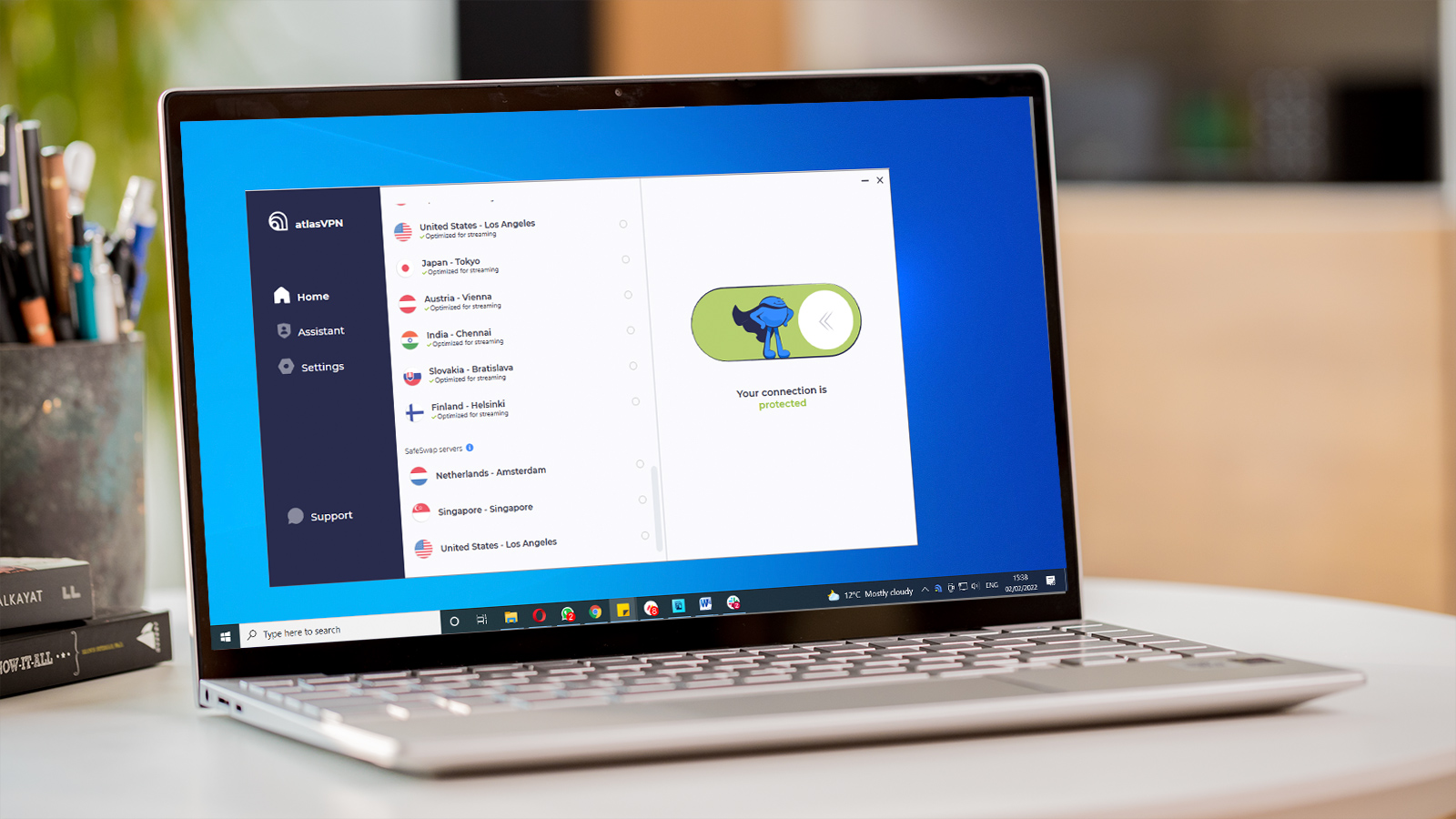
Pros
- Affordable (also has free plan)
- Great connection speeds
Cons
- Based in the US with no audit
- Doesn’t unblock all streaming services
Price When Reviewed:
From £1.46 per month
Atlas VPN is another service owned by Nord Security, which also owns NordVPN and Surfshark. Atlas VPN is the cheapest of the three, but that’s reflected in the service you get.
It doesn’t really matter that it has a relatively small number of servers because all the popular countries are covered. A larger problem for anyone needing a VPN for privacy is that it’s based in the USA. Atlas VPN claims not to log any data about its users, but since it has never had a third-party audit, there’s no proof of this.
If you’re happy to give it the benefit of the doubt, given the Nord Security backing, then Atlas VPN is a very tempting option for those on a budget. Oh, and it also supports IPv6 (most don’t) and allows unlimited connections, so you can use it on as many devices as you like.
The bad news is that Atlas VPN isn’t amazing at unblocking streaming services. It’ll let you watch Netflix, HBO Max and other big names, but didn’t unblock BBC iPlayer, ITV X or 9now when we tested it.
Read our full
Atlas VPN Premium review
8. hide.me VPN
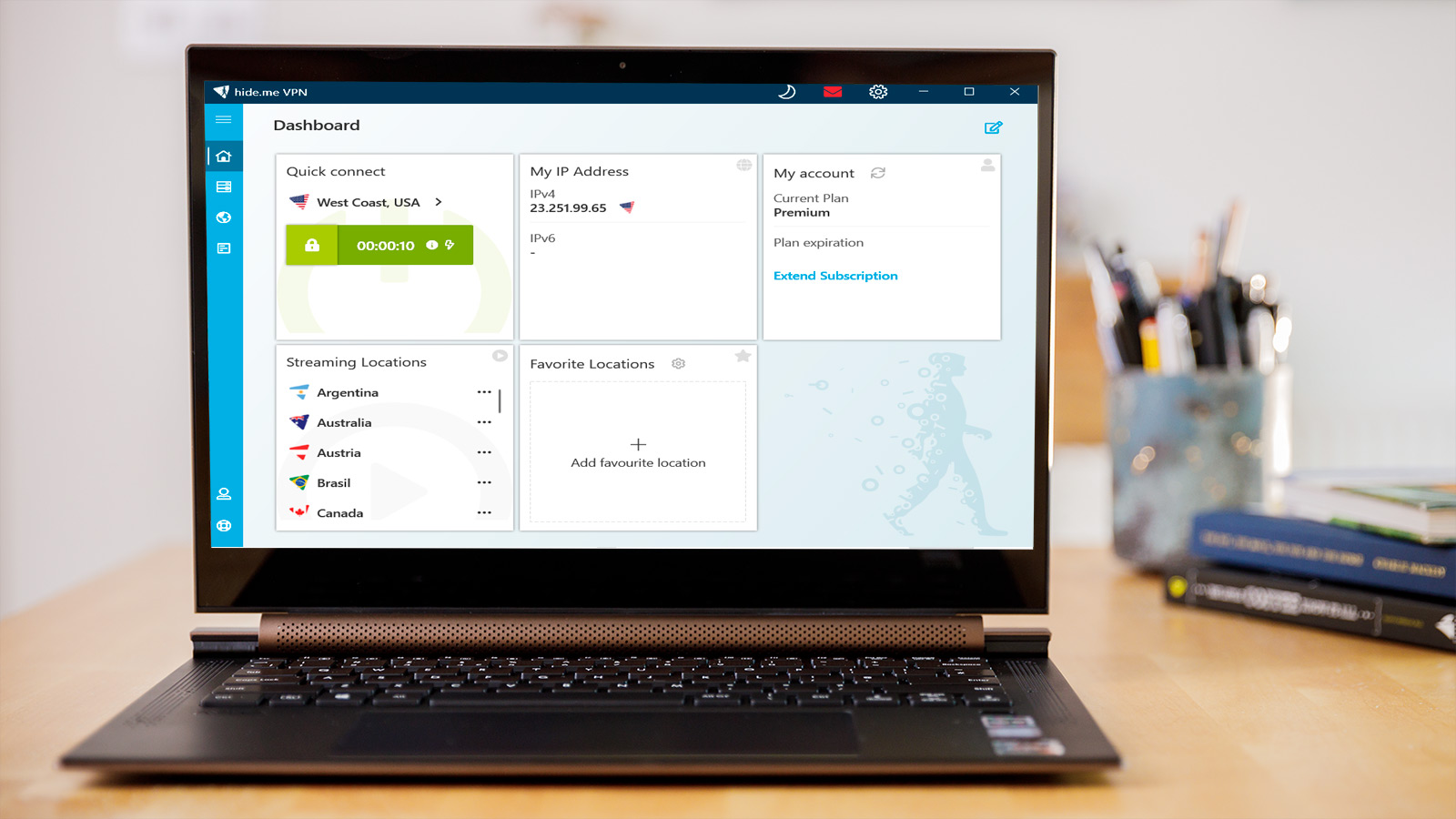
Pros
- Good for unblocking streaming services
- Free version
- No price hike on renewal
Cons
- Third-party audit not updated since 2015
- Speeds were inconsistent in our tests
- Not the easiest VPN for beginners
Price When Reviewed:
From free (Premium subscription from £3.49 per month)
Hide.me is a Malaysia-based VPN which has improved its service over the years. Fairly recently it has expanded the number of servers and doubled the number of countries it covers. It also has a wide variety of features that can be tweaked, making it a good option for those who like to customise their VPN experience.
Hide.me offers good overall speeds and offers a completely free version, with some limitations of course.
Some minor interface snags and speed inconsistencies hold it back a bit but with much more attractive pricing (particularly the two-year subscription) it is much better value than it has been in the past
We’re also really happy to see its Pricing Guarantee, which means you pay the same and get the same duration on renewal as when you first signed up. That’s a real gotcha with NordVPN, Surfshark and some others.
Read our full
hide.me VPN review
9. Hidden24 – Best for ultimate privacy

Pros
- Owned & managed hardware
- Unblocks Netflix & iPlayer
- Best for privacy
Cons
- No apps – requires VPN support from your device
- Not the most user friendly
- Only 1 connection at a time
Price When Reviewed:
From £3.33 per month
Hidden24 is different to the other services here. It’s a VPN designed from the ground up to offer ultimate privacy.
The pursuit of privacy above all else means a completely different approach to every other service. There are no apps to download: Hidden24 uses a device’s own VPN capability. That means it will work on Android, Mac, iPhone or Linux as well as Windows, but also means you can’t change servers very easily and there’s no kill switch, unless the operating system has one of its own.
Hidden24 owns and operates all its hardware and currently offers seven location to choose between: UK, US, Germany, Italy, France, Spain & Sweden.
Those servers run custom code – not open source software on top of Linux which is what most rented VPN servers in the cloud use. Not even Hidden24’s staff can access the servers, which is why it’s a solid choice if security and privacy are your top priorities (and why it’s ideal for journalists, who can use the service for free).
Unlike other ‘no-logs’ VPN services Hidden24 logs literally nothing, not even user sessions or the ‘anonymous data’ you’ll find mentioned in most rivals’ privacy policies. Again, this is great for privacy, but it has a drawback: you’re restricted to using just one device at a time. Connecting to a server on a second device will stop the connection on the first device.
The way to get around this (and the fact some devices don’t support VPNs) is to configure a compatible router with Hidden24 so all connected devices benefit from the VPN.
Despite the focus on privacy, Hidden24 reliably unblocks Netflix, iPlayer and other streaming services which are available in the seven countries it supports.
This alternative approach to VPN certainly isn’t for everyone. But it’s a great choice if you want the best privacy are are happy to forego convenience to get it. It’s also much cheaper than its rivals if you only subscribe for a month. If you prefer a longer subscription, you can get an exclusive deal on a two-year plan.
Read our full
Hidden24 review
10. PureVPN
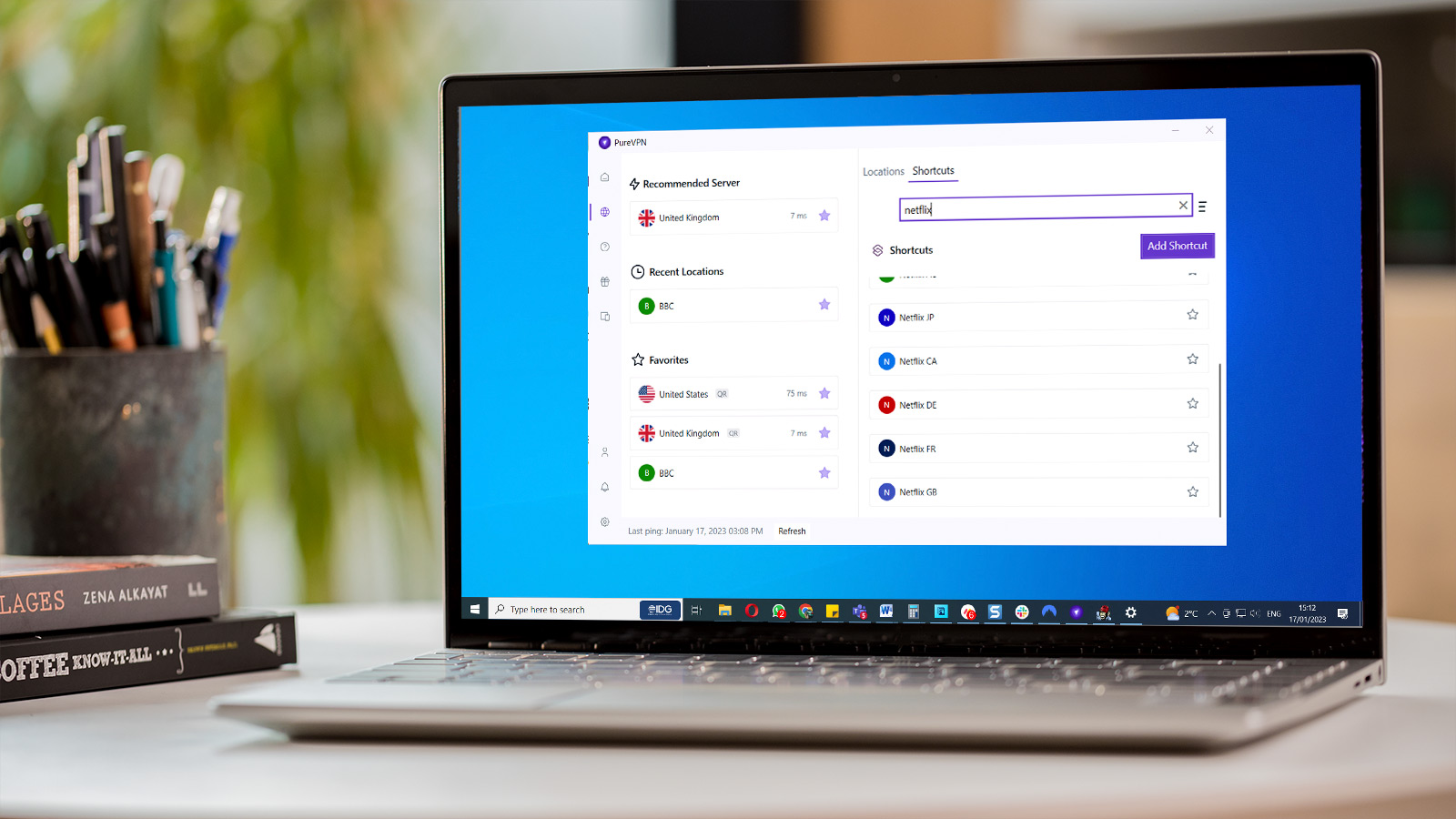
Pros
- Audited no-logs policy
- Good unblocking of steaming services
- Good-value two-year plan
Cons
- Apps are quite basic
- Regular requests for verification while browsing online
Price When Reviewed:
From $1.99 per month (around £1.62)
A decent choice for streaming, thanks to a huge choice of countries and – when we checked recently – actually able to unblock Netflix, iPlayer and others.
PureVPN is registered in the British Virgin Islands these days (more privacy friendly than the previous Hong Kong HQ) and can also be commended for allowing its no-logs policy to be ‘snap audited’ (an unscheduled audit that the company couldn’t prepare for). When this last happened, KPMG was able to confirm it sticks by that policy, which is great news.
There’s decent 24/7 live chat to help sort common problems and the service is competitively priced: you can find the latest deals on PureVPN’s website.
One reason that PureVPN isn’t higher up this list is that, although they’re easy to use, its apps lack some of the features that rivals offer, and we weren’t overly impressed with the speeds it was able to achieve with WireGuard. They may be fast enough if your broadband has a download speed of less than 200Mbps, but for those with full fibre, you’ll notice the drop in performance.
Read our full
PureVPN review
Why have we chosen these VPN services?
Testing and reviewing VPN services is an in-depth process. There are many factors to consider: the cost of the subscription (and if that increases when it renews), the connection speeds to servers around the world, the number and location of those servers, which devices it works on, the features available in each of the apps it offers, the quality and speed of tech support and other crucial aspects such as privacy- and data-logging policies.
The most important thing is know is that when you use a VPN, you’re entrusting that service with all of your internet data. That’s because it becomes a middle-man between you and the website or service you’re using. The data is encrypted, but only until it reaches the VPN server, at which point it is decrypted and sent onto its final destination.
This is why we place such high importance on independent audits: it’s not enough for a VPN to say it doesn’t log your data. Any service can say that, but those that prove it with an audit mean you don’t have to take their word for it.
The services below are the only ones we currently recommend and, even then, sometimes that recommendation is for a specific task such as unblocking video rather than for privacy.
What to look for in a VPN service
Because VPN services vary in price quite dramatically, it can be tempting to go for the cheapest. There are good, cheap VPNs, but it is still important to choose one you trust and that offers the features you require. The old adage “you get what you pay for” doesn’t always apply to VPN services.
However, do bear in mind that the discounted prices don’t always continue when your subscription renews, so be sure to turn off auto renewal or cancel your subscription before it expires. In some cases the renewal price will be the same as what you originally paid, but check the duration: it’s often half (or less) than your original subscription.
Most VPNs offer a 30-day money-back guarantee so you can try them out and make sure they let you access the services you need, but watch out for any payment methods which the service says isn’t refundable, such as Google Pay or Apple Pay, for example. It’s also worth checking TrustPilot reviews, as these can reveal whether a service is willing to give these refunds and if it makes it difficult to cancel at the end of your discounted subscription.
Beyond price, decide what you want to use a VPN for. If you just want to unblock videos from HBO Max, Disney+ or another service that’s not available in your country, then you don’t have to worry too much about any other details: just go for a well-priced service that works with the services you need. A VPN’s privacy credentials aren’t massively important if you’re just streaming video, but do remember that when you connect to a VPN, all your web activity could potentially be seen by the VPN provider.
VPN services play a cat-and-mouse game with video streaming services, which means none of them offer a cast-iron guarantee they’ll unblock a given service on a given day. That’s where good live-chat support comes in, as it’ll help you fix such problems quickly. Sending an email to tech support and waiting two days for a reply isn’t good enough for many people, but that’s how some services still provide support.
If you care about privacy and security, you’ll want to go for a VPN that doesn’t log any data and ideally owns and manages its servers, rather than renting servers from a datacentre. Put simply, if you want to minimise the risk of your VPN service being hacked and your identity, location and activity being exposed, opt for one which runs hardware that’s exclusively under its control. And if your life depends upon your VPN connection, it’s probably not a good idea to use a consumer VPN service at all, though Hidden24 is a good bet.
Don’t be persuaded by a bigger number of servers or choice of countries: it doesn’t mean it’s a better VPN. What you should look for are servers in the countries you either need to appear to be in or are physically present in, as a local VPN server will always give you the fastest speeds from any given service.
It’s highly likely you’ll only use handful of the servers available, and you certainly won’t want to connect to a server the other side of the world if it reduces your internet connection speed to a crawl.
Testing a VPN service’s speed is tricky as it varies all the time. The best way to find out if a service is quick or not is to read our reviews.
Just about all VPNs support Windows, Android, iOS and macOS, but some offer apps for a wider selection of devices including Amazon Fire TV Stick, Linux and web browser extensions for Google Chrome, Firefox and others.
You don’t actually need an app if your device supports a VPN connection, so you can enter your username, password and other details into your NAS, router or other device. However, that’s a hassle when you want to change to a different server as you need to set up a connection manually for each one. Plus, it means you miss out on advanced features only available in the apps, including a kill switch if the operating system doesn’t provide one.
Public / free Wi-Fi
It’s a good idea to use a VPN whenever you’re connected to an open public Wi-Fi network in a café, hotel, airport or on public transport. When a Wi-Fi network doesn’t require a password to connect (and entering your email or other details in a web browser doesn’t count here) it means the connection from your phone to the network is unencrypted.
And that means it is possible for someone to spy on your activity. However, most websites and web services use encryption anyway: a VPN is more like an insurance policy just in case sensitive data does end up being sent as plain text.
One other thing to look out for is any restrictions on usage – some ban P2P (file sharing) while others are fine with it.
FAQ
What is the ‘5 Eyes’ and ’14 Eyes’ collective?
If you’re most concerned about privacy, it’s important to know where your VPN is based. Or, more specifically, where the business is registered and therefore in which jurisdiction it operates.
In recent years some countries have got together to exchange information freely, nominally in a bid to enhance everyone’s security. However, many groups are critical of this behaviour, believing that mass surveillance impinges on our freedoms.
The main group of countries that can share information freely is called the Five Eyes. They come from the UKUSA agreement that, although begun back in 1941, was only made public knowledge in 2005. The agreement is between Australia, Canada, New Zealand, the United Kingdom and the United States, hence the name Five Eyes. Those countries have agreed to collect, analyse and share information between each other, and much of this intelligence is believed to be related to internet activity these days.
The Five Eyes has grown to include a total of 14 countries, which is why you’ll hear a lot about ’14-eyes’ when reading about VPNs. Third party countries were added over time, and now additionally include Denmark, France, Holland, Norway, Germany, Belgium, Italy, Sweden and Spain.
If your VPN provider is based within a country that is part of the 14 Eyes, it can be asked to share data of its customers and will legally have to comply. If your provider promises that it doesn’t log any information, you’re probably safe within the 14 Eyes, but it is more of a risk if privacy is your main concern and you might want to consider looking for a VPN provider that is based elsewhere
What information does a VPN keep?
VPN providers generally claim to not log anything. These days it’s rare for them to log connection time stamps, IP addresses and bandwidth used: they usually only log anonymous information ‘necessary to maintain and improve the service’.
We check carefully using information available to us exactly what each service logs, and include this in each review, along with whether that policy has been independently audited to verify it.
If you’re looking for complete anonymity, choose a provider that accepts payment in the form of gift cards or Bitcoin, which makes it near-impossible to trace any activity back to an individual. Just note that a VPN does not make you anonymous online.
Are VPNs banned in China and Russia?
Most VPN services claim to work in China and Russia. The truth is that, as with streaming, it’s a cat-and-mouse game where the governments work out how to block connections if they detect you’re using a VPN and they’re very good at doing so.
It means that you can’t know for sure if a certain service will let you access Google and other sites on a particular day, and that’s one reason why it pays to subscribe to a service with 24/7 live chat support: they’ll be able to help you pick the right server and settings to bypass the blocks at that time.
Are VPNs easy to use?
Yes. Modern VPNs are controlled by easy-to-use apps. Once you’ve signed in, it’s usually as simple as choosing a country and pressing ‘Connect’. All the complex encryption happens in the background and you don’t have to think about it.






